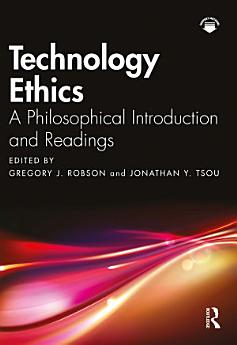Technology Ethics: A Philosophical Introduction and Readings
এই ইবুকখনৰ বিষয়ে
- Perspectives on Technology and its Value
- Technology and the Good Life
- Computer and Information Technology
- Technology and Business
- Biotechnologies and the Ethics of Enhancement
A hallmark of the volume is multidisciplinary contributions both (1) in "analytic" and "continental" philosophies and (2) across several hot-button topics of interest to students, including the ethics of autonomous vehicles, psychotherapeutic phone apps, and bio-enhancement of cognition and in sports. The volume editors, both teachers of technology ethics, have compiled a set of original and timely chapters that will advance scholarly debate and stimulate fascinating and lively classroom discussion.
Downloadable eResources (available from www.routledge.com/9781032038704) provide a glossary of all relevant terms, sample classroom activities/discussion questions relevant for chapters, and links to Stanford Encyclopedia of Philosophy entries and other relevant online materials.
Key Features:
- Examines the most pivotal ethical questions around our use of technology, equipping readers to better understand technology’s promises and perils.
- Explores throughout a central tension raised by technological progress: maintaining social stability vs. pursuing dynamic social improvements.
- Provides ample coverage of the pressing issues of free speech and productive online discourse.
লিখকৰ বিষয়ে
Gregory J. Robson is an Assistant Professor of Philosophy at Iowa State University and a Visiting Assistant Research Professor in the Mendoza College of Business at the University of Notre Dame. His research focuses on ethics (including business and technology ethics) and social and political philosophy.
Jonathan Y. Tsou is a Professor of Philosophy and the Marvin and Kathleen Stone Distinguished Professor of Humanities in Medicine and Science at the University of Texas at Dallas. He has teaching and research interests in philosophy of science, philosophy of technology, and philosophy of psychiatry.




